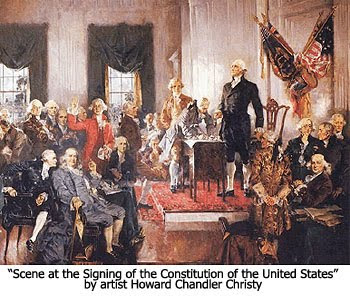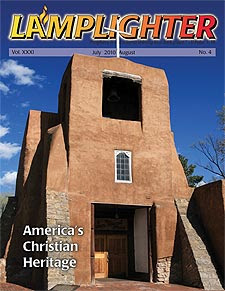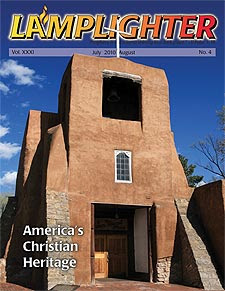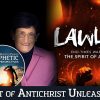The philosophical concept undergirding all the actions of our Founding Fathers was the belief that Christian morality was absolutely essential for both the preservation of liberty and the stability of law. They emphasized this crucial point in their writings over and over again:

Samuel Adams (1722-1803) — Governor of Massachusetts, signer of the Declaration of Independence, and organizer of the Boston Tea Party:
A general dissolution of principles and manners will more surely overthrow the liberties of America than the whole force of the common enemy. While the people are virtuous they cannot be subdued; but when they lose their virtue they will be ready to surrender their liberties to the first external or internal invader.1
Religion and good morals are the only solid foundations of public liberty and happiness.2
Benjamin Rush (1745-1813) — Signer of the Declaration of Independence, attendee at the Continental Congress, physician, and first Surgeon General:
The only foundation for… a republic is to be laid in Religion. Without this there can be no virtue, and without virtue there can be no liberty, and liberty is the object and life of all republican governments.3
Patrick Henry (1736-1799) — First governor of Virginia and member of the Continental Congress:
The great pillars of all government and of social life [are] virtue, morality, and religion. This is the armor… and this alone, that renders us invincible.4
George Washington (1732-1799) — Commander in Chief of the Continental Army, overseer of the Constitutional Convention, and first President of the United States:
Of all the dispositions and habits which lead to political prosperity, religion and morality are indispensable supports… in vain would that man claim the tribute of patriotism who should labor to subvert these great pillars of human happiness, these firmest props of the duties of men and citizens…5
John Adams (1735-1826) — Member of the Continental Congress, one of the drafters of the Declaration of Independence, and second President of the United States:
We have no government armed in power capable of contending with human passions unbridled by morality and religion… Our Constitution was made only for a moral and religious people. It is wholly inadequate to the government of any other.6
Thomas Jefferson (1743-1826) — Governor of Virginia, first Secretary of State, principle author of the Declaration of Independence, and third President of the United States:
No nation has ever yet existed or been governed without religion. Nor can be. The Christian religion is the best religion that has ever been given to man, and I as chief Magistrate of this nation am bound to give it the sanction of my example.7
James Madison (1751-1836) — Political philosopher, considered the “Father of the Constitution” and the “Father of the Bill of Rights,” member of the House of Representatives, and fourth President of the United States:
We have staked the whole future of American civilization, not upon the power of government, far from it. We have staked the future of all of our political institutions upon the capacity of mankind for self government; upon the capacity of each and all of us to govern ourselves, to control ourselves, to sustain ourselves according to the Ten Commandments of God.8

[Lamplighter: read (pdf) subscribe]
Notes
1) Dr. James Kennedy, “Our Constitution Was Made Only for a Moral and Religious People,” www.coralridge.org.
2) Paul H. Smith, Gerald W. Gawalt, Rosemary Fry Plakes, et. al., Letters of Delegates to Congress 1774-1789, volume 11.
3) Benjamin Rush, Essays, Literary, Moral & Philosophical, (Philadelphia: Thomas and Samuel F. Bradford, 1798), page 8.
4) Moses Coit Tyler, Patrick Henry, (New York: Houghton Mifflin Co., 1898; reprint, Ithaca: Cornell University Press, 1962), page 409.
5) The Great Books Foundation, The Will of the People: Readings in American Democracy (Chicago: Great Books Foundation, 2001), page 38.
6) John Adams, “Letter to Zabdiel Adams, Philadelphia, 21 June 1776,” in The Works of John Adams — Second President of the United States, ed. Charles Francis Adams (Boston: Little, Brown & Co., 1854), vol. 9, p. 401.
7) Joseph Loconte, “Why Religious Values Support American Values,” The Heritage Foundation, www.heritage.org/Research/Lecture/Why-Religious-Values-Support-American-Values.
8) Ibid.









Just in case ya’ll need to see this.
"Breaking: OBAMA SHUTS DOWN 33% OF THE COUNTRY'S OIL REFINING CAPACITY"
http://www.prophecyupdate.blogspot.com/
The Osama Bin Laden's of Christianity
Your Jefferson quote is spurious.